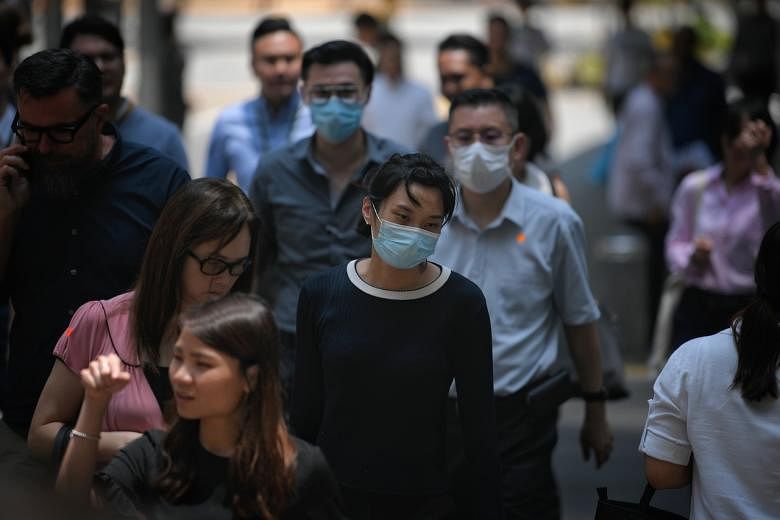The world faces a long battle with the coronavirus pandemic, and even nations that have been gaining ground must not let their guard down, the World Health Organisation (WHO) said yesterday.
"This is a pandemic unlike (any) the world has ever seen, and it has challenged our system and put a strain on people's lives, in an unprecedented way… Let me be clear: The epidemic is far from over in Asia and the Pacific," Dr Takeshi Kasai, WHO's regional director for the Western Pacific, told reporters.
"This battle is going to be a long-term battle," he said.
Dr Matthew Griffith, a technical adviser to WHO, said: "Some areas, through strong efforts to contain clusters and physical distancing, that were able to slow transmission like Japan, Korea (and) Singapore are now reporting increasing cases again. Most are imported cases. This is also a concern."
But there are signs of some stabilisation in Europe, as the hardest-hit country in the region, Italy, reported the smallest number of new cases in almost two weeks.
The number of new cases in Italy on Monday rose by 4,050 - the lowest figure since March 17 - to reach a total of 101,739 cases.
Dr Mike Ryan, head of health emergencies at WHO, said on Monday "our fervent hope" is that Italy and Spain were approaching a peak, and that European lockdowns, which started several weeks ago, would start to bear fruit.
"It won't go down by itself. We need countries to focus on what is the strategy," said Dr Ryan.
Dr Kasai said measures like mass testing, cluster containment, early treatment, social distancing and lockdowns "buy us valuable time to prepare for large-scale community transmission".
"There's no one size fits all… Every country is trying its best with its own context," he said, when asked which approach was proving to be most effective against the pandemic.
The World Bank has warned that if the pandemic dragged on, up to 11 million people could fall into poverty, with low-wage and informal-sector workers the most vulnerable.
"The worst suffering could be for informal workers, people who are... invisible and very hard to identify, find and help," Mr Aaditya Mattoo, the World Bank's chief economist for East Asia and the Pacific, told journalists on Monday.
"And even if you see growth, thousands of tourism workers in Thailand, garment workers in Cambodia, could be pushed below the poverty line."
The World Bank estimates that 24 million fewer people will escape poverty this year because of the pandemic than would have been the case, using a poverty line of US$5.50 (S$7.84) a day.
And if the economic situation deteriorates further, then prior projections estimating that nearly 35 million people would escape poverty in East Asia and the Pacific in 2020, including more than 25 million in China alone, will essentially be nullified.

